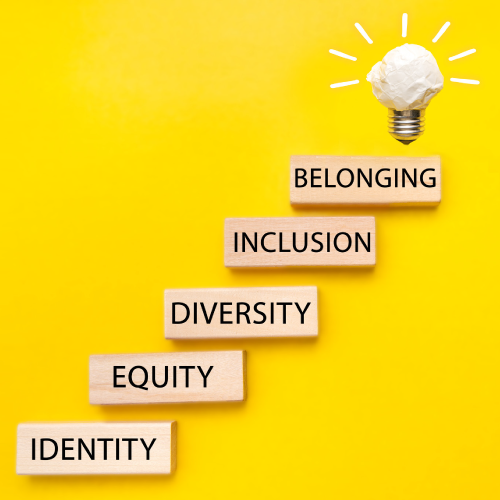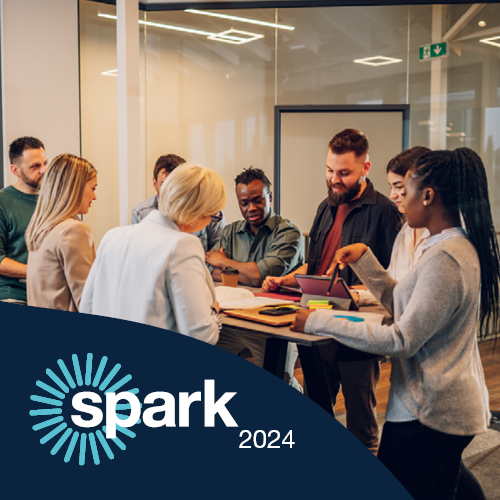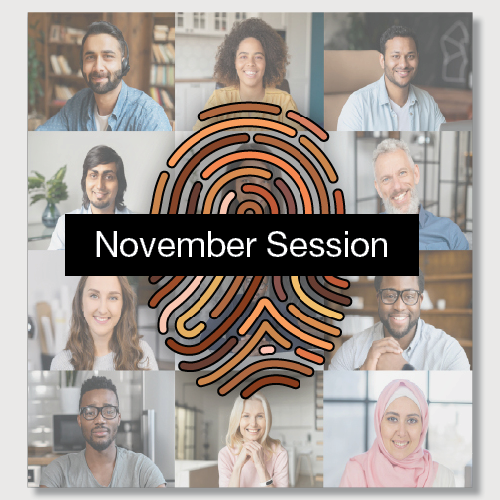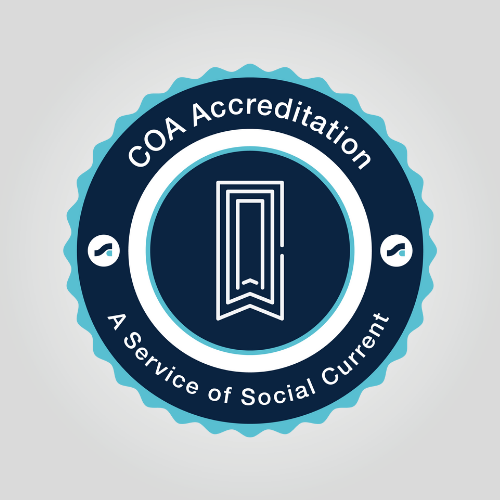July 9 @ 12:00 pm – 3:00 pm UTC
Impact Partners and/or COA Accredited Organizations: $800
Other Organizations: $1,000
Session Dates: July 9, 16, and 25 from noon – 3 p.m. ET.
Understanding how to build an inclusive and equitable culture is the job of every leader within an organization. Creating an inclusive culture connected to the meeting mission in co-creating with communities across the country is essential in building a perfect union.
As some voices push against a ‘woke culture,’ there is an ever-increasing need to continue to raise the banner for social justice on every front and building organizational capacity for advancing equity, diversity, and inclusion (EDI). The need for leaders, especially within social sector organizations, to engage in building an equitable society for all.
During this three-part virtual workshop, participants will learn and engage in a safe environment, where they can ask questions and share reflections with their peers. Using Social Current’s three-prong approach to EDI (Person, Organization and Systems), the presenters will encourage participants to develop a deeper personal EDI journey, to build an inclusive work culture, and to become more aware of the systems that impact us all.
Session Objectives
Session One: Connecting Our Past to the Present (July 9 from noon – 3 p.m. ET)
- Connecting the past to the present; the history of systemic racism and its current impact
- Learning the steps for personal EDI growth
Session Two: Moving Towards a More Perfect Union (July 16 from noon – 3 p.m. ET)
- Cultural humility
- Psychological safety
Session Three: Supporting Your Organization’s EDI Journey (July 25 from noon – 3 p.m. ET)
- Learn the phases of organizational growth in EDI
- Discuss the essential components of an effective EDI plan
- Discuss the challenges and opportunities for organizations as they implement EDI plans
Workshop Goals
- Explore relationships with EDI in a safe environment
- Increase understanding of how to build an equitable and inclusive workplace culture
- Why and how to build psychological safety among teams, identify individual biases, and understand the role of inequitable systems
- Phases of organizational growth in EDI and the essential components of a successful EDI plan
Who Should Participate
- Senior Leadership
- Directors and Managers
- EDI Practitioners
Instruction Methods
The workshop will include webinar presentations of core concepts, facilitated discussions, and reflection opportunities. Organizations are encouraged to send multiple employees for collaborative learning and to build agency knowledge.
Presenters
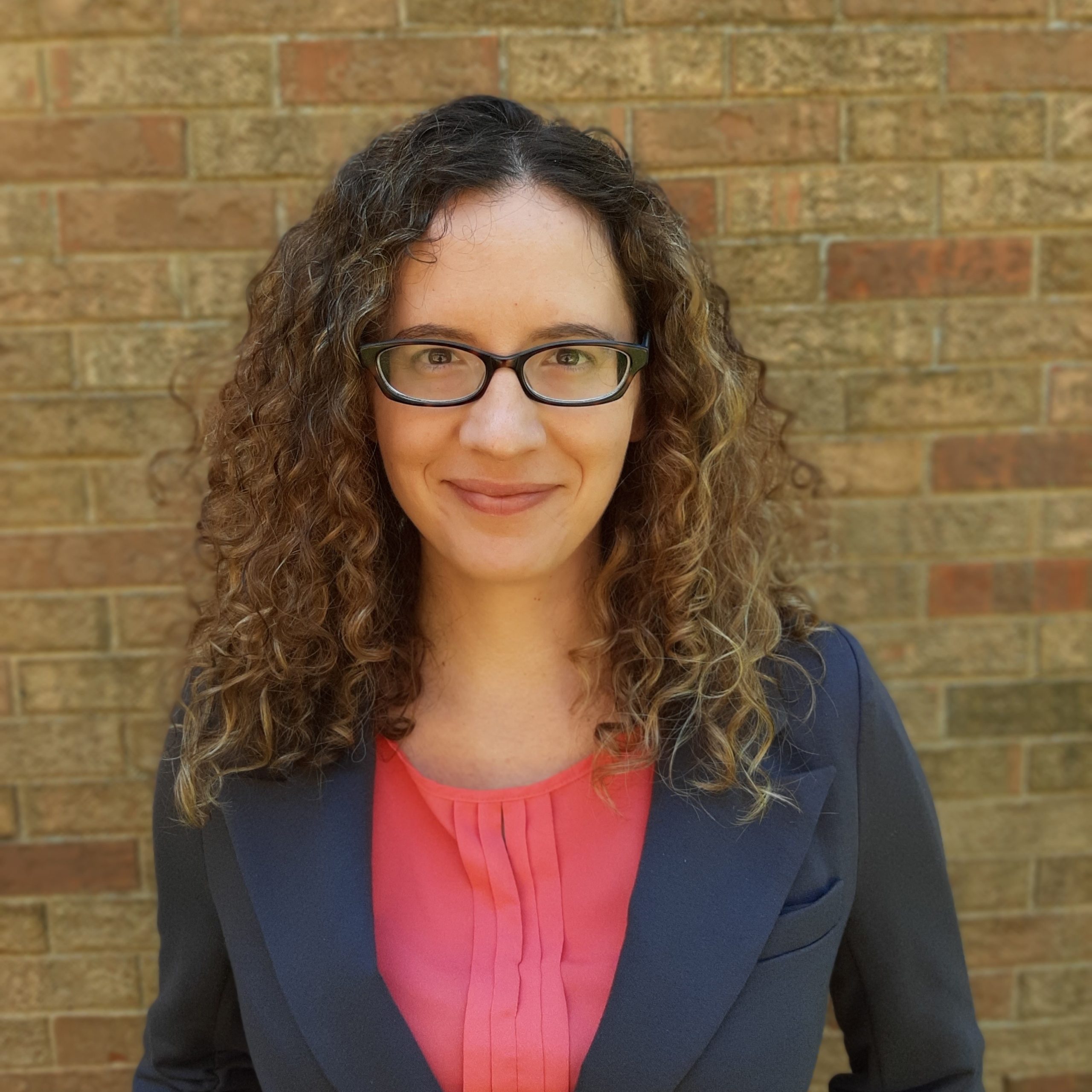
Jerica Broeckling
EDI Consultant
Social Current
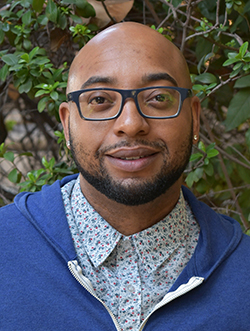
Romero Davis
Senior Program Manager
Social Current
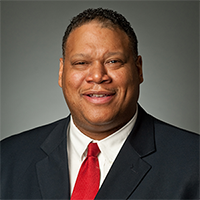
Undraye Howard, PhD
Vice President of Equity, Diversity, Inclusion, and Engagement
Social Current
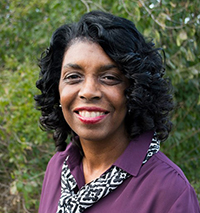
Phyllis Richards
Director of EDI and Research
Social Current
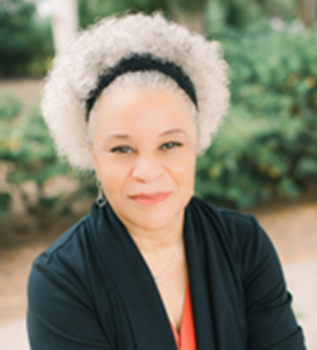
Sheryl White, PsyD
Cultural Psychologist, OD Practitioner & Leadership Coach
Related Events
November 1, 2023 @ 12:00 pm – 4:00 pm UTC
Session Dates: Nov. 1, 8, and 15 from Noon-4 p.m. ET
Understanding how to build an inclusive and equitable culture is the task of every leader within an organization and is essential in building a perfect union. With the backdrop of voices pushing against a ‘woke’ culture and an ever-increasing need to raise the banner for justice on every front, advancing organizational equity, diversity, and inclusion (EDI) is more critical than ever. The need for leaders across sectors, especially the social sector, to understand and engage the current environment is essential in creating an equitable society for all.
This journey begins by ensuring all people feel valued at work. It mandates the co-creation of an inclusive workforce that can foster a healthy, productive, and peaceful society where all people can reach their full potential. The journey continues by establishing a culture that supports equity for long-term, sustainable change by challenging the inequitable systems which marginalize, disconnect, and dismiss individuals from access and full participation in economic mobility and prosperity.
During this three-part virtual workshop presented by Social Current, participants will explore their relationships with EDI in a safe environment and make progress on developing an EDI action plan for their organizations.
Because advancing EDI requires more than just basic knowledge and the will to improve, presenters will help participants acknowledge their biases and the role of historical discrimination, non-inclusive behavioral actions, and culture in creating an unjust society. The workshop will include presentations of valuable information, facilitated discussions, and reflection opportunities.
Workshop Goals
- Increase understanding of building an equitable and inclusive culture.
- Understand the need to build psychological safety amongst teams, identify individual biases, and understand the role of inequitable systems.
- Explore your relationship with EDI in a safe environment.
Who Should Participate
- Staff responsible for diversity, equity, and inclusion
- Human resources professionals
- Organizational development professionals
- Executives
- Board members
- Executive search firms
Presenters

Jerica Broeckling
EDI Consultant
Social Current

Romero Davis
Senior Program Manager
Social Current

Undraye Howard, PhD
Vice President of Equity, Diversity, Inclusion, and Engagement
Social Current

Phyllis Richards
Director of EDI and Research
Social Current
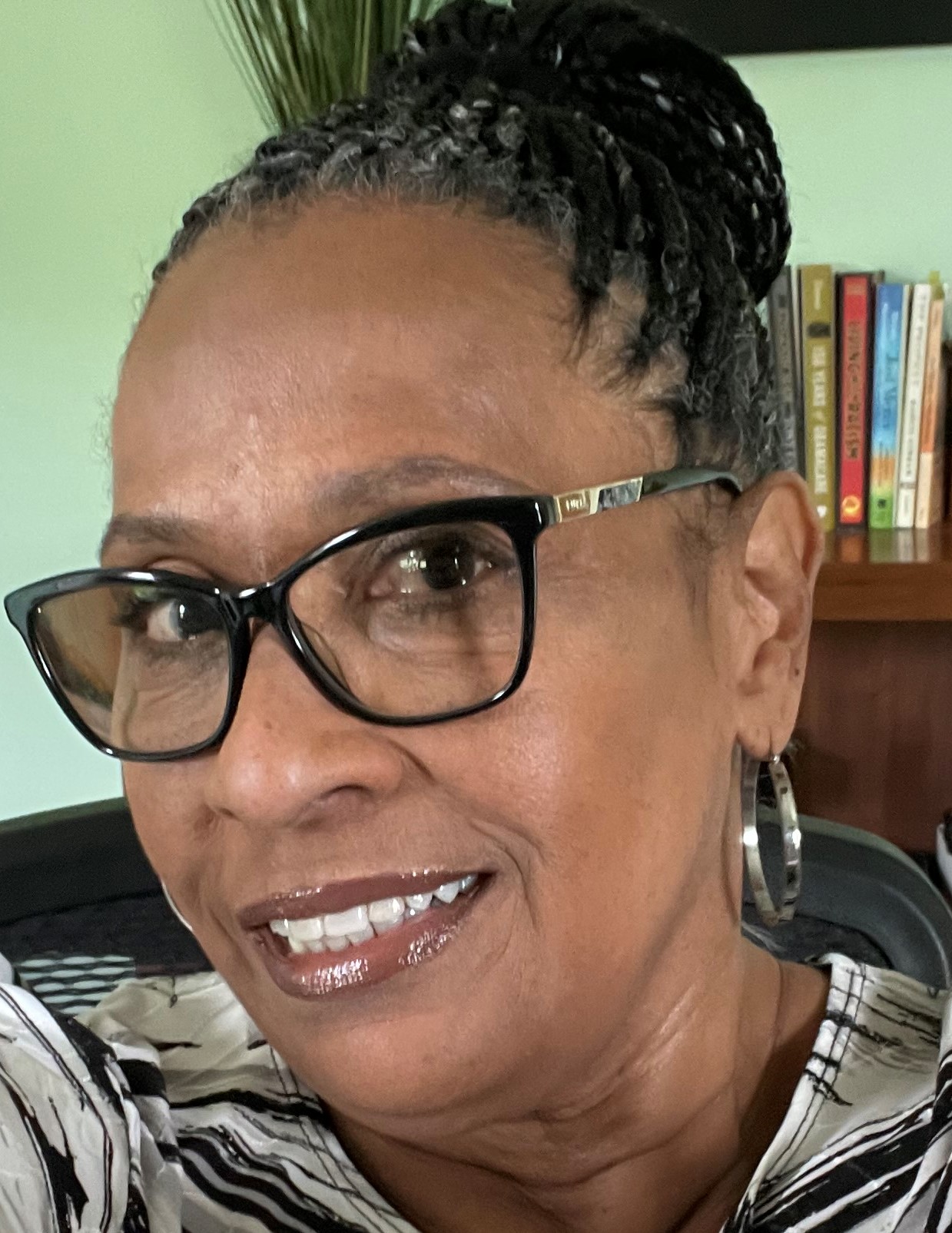
Deb Smith
Executive Coordinator for the President/CEO
Program Manager, Equity, Diversity & Inclusion
Social Current
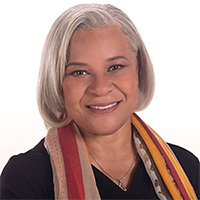
Sheryl White, PhD
Vice President of Training and Organizational Development
Neighborhood House Association
Related Events
May 4, 2023 @ 11:00 am – 3:00 pm UTC
Session Dates: May 4 from 11 a.m.-3 p.m. ET, and May 11, 18 from 1-5 p.m. ET
Understanding how to build an inclusive and equitable culture is the task of every leader within an organization and is essential in building a perfect union. With the backdrop of voices pushing against a ‘woke’ culture and an ever-increasing need to raise the banner for justice on every front, advancing organizational equity, diversity, and inclusion (EDI) is more critical than ever. The need for leaders across sectors, especially the social sector, to understand and engage the current environment is essential in creating an equitable society for all.
This journey begins by ensuring all people feel valued at work. It mandates the co-creation of an inclusive workforce that can foster a healthy, productive, and peaceful society where all people can reach their full potential. The journey continues by establishing a culture that supports equity for long-term, sustainable change by challenging the inequitable systems which marginalize, disconnect, and dismiss individuals from access and full participation in economic mobility and prosperity.
During this three-part virtual workshop presented by Social Current, participants will explore their relationships with EDI in a safe environment and make progress on developing an EDI action plan for their organizations.
Because advancing EDI requires more than just basic knowledge and the will to improve, presenters will help participants acknowledge their biases and the role of historical discrimination, non-inclusive behavioral actions, and culture in creating an unjust society. The workshop will include presentations of valuable information, facilitated discussions, and reflection opportunities.
Workshop Goals
- Increase understanding of building an equitable and inclusive culture.
- Understand the need to build psychological safety amongst teams, identify individual biases, and understand the role of inequitable systems.
- Explore your relationship with EDI in a safe environment.
Who Should Participate
- Staff responsible for diversity, equity, and inclusion
- Human resources professionals
- Organizational development professionals
- Executives
- Board members
- Executive search firms
Presenters

Jerica Broeckling
EDI Consultant
Social Current

Romero Davis
Senior Program Manager
Social Current

Undraye Howard, PhD
Vice President of Equity, Diversity, Inclusion, and Engagement
Social Current

Phyllis Richards
Director of EDI and Research
Social Current

Deb Smith
Executive Coordinator for the President/CEO
Program Manager, Equity, Diversity & Inclusion
Social Current

Sheryl White, PhD
Vice President of Training and Organizational Development
Neighborhood House Association
Related Events
November 1, 2022 @ 12:00 pm – 4:00 pm UTC
Session Dates: Nov. 1, 8, 15 from Noon-4 p.m. ET
- Workshop: $650
- Intercultural Development Inventory® (IDI®): $288
Given the continued emergence of an interconnected society, an ever-evolving pandemic, calls for racial and social justice along with heightened polarization across many fronts, building organizational capacity for advancing equity, diversity, and inclusion is more critical than ever. The need for leaders across sectors, and especially within the social sector, to understand and engage the current environment is essential in building an equitable society for all.
This journey begins by ensuring all people feel valued at work. It mandates the co-creation of an inclusive workforce that can foster the development of a healthy, productive, and peaceful society in which all people can participate and reach their full potential. The journey continues with building a culture that supports equity for long-term sustainable change and engaging the inequitable systems, which marginalizes, disconnects, and dismisses individuals from having access and full participation in reaching economic mobility and prosperity.
During this three-part virtual workshop presented by Social Current, participants will explore their relationships with equity, diversity, and inclusion (EDI) in a safe environment and make progress on developing an EDI action plan for their organizations.
Because advancing EDI requires more than just basic knowledge and the will to improve, presenters will help participants understand their own biases and the role of historical discrimination, non-inclusive behavioral actions, and culture in creating an unjust society.
The workshop will include presentations of valuable information, facilitated discussions, reflection opportunities, and dedicated planning time. In addition to learning about core concepts, participants will put ideas into action with facilitated planning time. Everyone will begin developing action plans for their organizations or build on existing plans. Organizations are encouraged to send multiple employees to build or work on current EDI plans for advancement.
About the Intercultural Development Inventory® (IDI®)
To be equipped to advance equity within your community, organization, and beyond, it is essential to also understand and advance your personal journey. Enhance your participation in this workshop with the Intercultural Development Inventory® (IDI®), which provides valuable and actionable information about your own mindset/skillset toward cultural difference and commonality. The IDI®, a 50-item online questionnaire, has been developed and tested using rigorous cross-culturally validated psychometric protocols with over 220,000 respondents from a wide range of cultural groups and countries.
Add this assessment to your workshop registration to receive practical and in-depth information. Individuals will receive a customized IDI® Individual Profile Report and participate in a 60-minute one-on-one debrief session with Social Current Director of Evaluation and Research Phyllis Richards to discuss their results and develop a plan to meet their personal intercultural development goals. Richards is a qualified administrator of the IDI® and has more than a decade of experience in working collaboratively to address systemic racism and improve cultural competency.
Workshop Goals
- How EDI has changed over time within the U.S. as a result of legislation
- Understand the skills needed to advance your EDI personal journey
- How biases, racism, and incivility are barriers to building an EDI-enriched workplace culture
- Understand their organization’s phase of EDI maturity, and how to move to the next phase
- A multi-faceted approach for co-creating an organizational culture that fosters EDI
- Options for addressing critical current issues
- How to structure an organizational plan to advance EDI using results-based strategies
- Create the skeleton plan with facilitator support
Who Should Participate
- Staff responsible for diversity, equity, and inclusion
- Human resources professionals
- Organizational development professionals
- Executives
- Board members
- Executive search firms
Presenters

Undraye Howard, PhD
Senior Director and Special Advisor to the CEO for Equity, Diversity, Inclusion and Engagement
Social Current
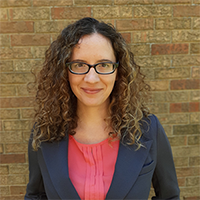
Jerica Broeckling, M.A.
Engagement Partner

Sheryl White, PhD
Vice President of Training and Organizational Development
Neighborhood House Association

Phyllis Richards, M.A., M.S.
Director of Equity, Diversity, Inclusion and Research
Social Current
Related Events
December 6, 2022 @ 3:00 pm – 4:00 pm EST
This webinar will provide an historical and contemporary overview of child neglect and its link to structural racism in child welfare. Then, the presenter will engage the audience in variations of child neglect definitions and the nuanced interpretations in child neglect investigations. The presentation will conclude with strategies to address and combat racial bias in child neglect reporting and in the substantiation of these investigations.
The 21st-century research agenda for child welfare calls for addressing research gaps in the quality of child protective services (CPS) investigations. Specifically, we need to understand more about how child welfare is responding to allegations of neglect and how improvements can be made.
About the Webinar Series
This webinar is one session in Social Current’s five-part learning series on the 21st-century research agenda for child welfare.
- Cutting through the Chaos by Reframing Childhood Adversity
Oct. 11 from Noon-1 p.m. ET - How Monthly Cash Gifts Are Fostering Infant Brain Development
Oct. 13 from 2-3 p.m. ET - Supporting Safe and Effective Investigations through Training Labs
Nov. 29 from 3-4:30 p.m. ET - Building Protective Factors through Family Resource Centers
Dec. 1 from 3-4:30 p.m. ET - An Anti-Racist Approach to Child Neglect Investigations
Dec. 6 from 3-4 p.m. ET
The Annie E. Casey Foundation, Casey Family Programs and the William T. Grant Foundation are leading an initiative, along with many partners, to identify research gaps related to community-based family support, child protective services, out-of-home care, and post-permanency services. The initiative is now working to conduct research, rooted in equity and co-designed by people with lived experience, to address these gaps and answer key questions, as well as increase the use of this research in decision making. Learn more about the 21st-century research agenda for child welfare online.
Takeaways
- Historical overview of child neglect, poverty, and structural racism in child welfare
- Variations of child neglect definitions in child welfare
- How to address racial disparities in child welfare investigative policies/practices
- Mandated reporting requirements
- Recommendations/strategies to combat race bias in child neglect investigations
Who Should Participate
- Social workers
- Child welfare professionals
- Law enforcement
- Child welfare academic scholars
- Individuals with lived experiences in child welfare system involvement
Presenter
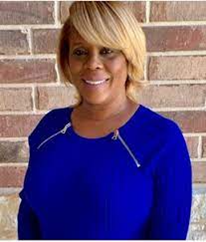
Sherri Y. Simmons-Horton, Ph.D., LMSW
Assistant Professor
University of New Hampshire, Department of Social Work
Related Events
While there are many ways to build your organization’s capacity for equity, diversity, and inclusion (EDI), they all require an overarching commitment and investment. With limited resources and many priorities, some may wonder if there is really a tangible ROI to EDI efforts.
Well, just look at the data.
Research compiled by the Performance Excellence Network shows that investing your organization’s time and resources in EDI strategies can support your business, in addition to your mission. Highlights from that research include:
- The top quartile of diverse companies is more likely to financially outperform national industry means – 35% for ethnic diversity, 15% of gender diversity (McKinsey)
- Employees in highly diverse and inclusive organizations show 26% more team collaboration and 18% more team commitment than those in non-inclusive organizations (CEB/Gartner)
- Inclusive companies are three times more likely to retain millennials for more than five years (Deloitte)
So now what?
To ensure that your investment leads to real change at your organization, make sure you receive the right level of support you need. One unique opportunity that can help you build and sustain momentum toward your goals is our upcoming EDI Learning Collaborative. Participants will collaborate with peers at other organizations in a supportive environment and receive guidance from EDI experts in developing, implementing, and advancing their equity work. This collaborative offers continual support over a 15-month period.
Apply by submitting the online application by June 30.
Our three-part virtual workshop offers learning and support to participants over the course of a month. It combines valuable information, facilitated discussions, reflection opportunities, and focused work time to begin developing an EDI action plan. We recommend sending multiple staff who serve on your EDI committee or advance EDI in other ways. This workshop will provide the tools, guidance, and dedicated time they need to be successful.
Register now for our upcoming June session (June 9, 16, and 23). Additional sessions are being offered in September/October and November.
May 26, 2022 @ 1:00 pm – 4:00 pm EDT
Three CEU Credits (Social Work): Approved by the NASW-Michigan Social Work Continuing Education Collaborative. Please check with your local accrediting body for reciprocity.
This training provides an overview of gender-affirming care and transitioning (socially, medically, and legally). These practices serve to increase safety, access to resources, and mental/emotional well-being for gender diverse people. Whether a medical professional or someone who is interested in advocating for the LGBTQ+ community, participants will leave with concrete behaviors which can be implemented in a variety of roles when serving individuals with diverse gender identity and expression.
This training series is interactive, and participants are asked to be on camera and able to interact with other participants through video, audio, and chat periodically. While this is an expectation of the training, we understand that there can be barriers to this type of involvement. Reach out to the trainers ahead of time at for more information or accommodations.
Objectives
- Why we are discussing SOGIE (statistics, evidence-based practices, personal narratives)
- Introduction to gender-affirming care (medically, socially, and legally) as well as hearing directly from youth who have accessed gender-affirming care at the Ruth Ellis Center and the medical and behavioral health professionals who practice this work
- Address common assumptions/myths related to gender diversity and gender-affirming care
Who Should Participate
- Professionals who work with children, youth, young adults, and/or families who have previous introductory knowledge on sexual orientation, gender identity, and expression
- Participants can be individuals who directly with others or be involved in supervision, management, and leadership
- Professionals who work in integrated health would especially benefit from this training, but the content is applicable in many areas of work (case managers, social workers, foster parents, case supervisors, program staff, program managers, program directors, quality assurance)
Courses in this Series
SOGIE 101
Monday, May 23 from 1-4 p.m. ET
Inclusive Data Collection: How to Ask About SOGIE In Systems of Care
Tuesday, May 24 from 1-4 p.m. ET
Family Support with LGBTQ Children
Wednesday, May 25 from 1-4 p.m. ET
Gender Affirming Care
Thursday, May 26 from 1-4 p.m. ET
About the Training Series
Ruth Ellis Institute has developed the following training content through researching how adult practitioners, government health and human service employees, and staff at community-based organizations leverage their existing experience to integrate more affirming practices for lesbian, gay, bisexual, transgender, and questioning (LGBTQ) youth.
The development of this curriculum is embedded within a LGBTQ-specific direct service organization, ensuring that on-the-ground implementation is informing training content. Ruth Ellis’ model connects:
- Youth and their families lived experience
- Direct practice
- Research and evaluation
- Coaching and consulting
- Policy and regulations
Content in Gender-Affirming Care has been developed at the Ruth Ellis Center in partnership with the University of Michigan and Henry Ford Health System. Centering the lived experience of Black and Brown people who are transgender and non-binary, the framing of the training objectives was developed through two focus groups by and with the community. Ruth Ellis Institute produced and developed a film which anchors the content through featuring wisdom from Black and Brown transgender and non-binary individuals. Participants will leave with urgent recommendations for all agencies who serve youth, especially in integrated health care.
Trainers
Angelika Lewis (she/her/hers)
Education and Evaluation Coordinator
Ruth Ellis Center
Jessie Fullenkamp (she/her/hers), LMSW
Education and Evaluation Director
Ruth Ellis Center
Related Events
May 25, 2022 @ 1:00 pm – 4:00 pm EDT
Three CEU Credits (Social Work): Approved by the NASW-Michigan Social Work Continuing Education Collaborative. Please check with your local accrediting body for reciprocity.
This training provides an overview of gender-affirming care and transitioning (socially, medically, and legally). These practices serve to increase safety, access to resources, and mental/emotional well-being for gender diverse people. Whether a medical professional or someone who is interested in advocating for the LGBTQ+ community, participants will leave with concrete behaviors which can be implemented in a variety of roles when serving individuals with diverse gender identity and expression.
This training series is interactive, and participants are asked to be on camera and able to interact with other participants through video, audio, and chat periodically. While this is an expectation of the training, we understand that there can be barriers to this type of involvement. Reach out to the trainers ahead of time at for more information or accommodations.
Objectives
- Why we are discussing SOGIE (statistics, evidence-based practices, personal narratives)
- Introduction to gender-affirming care (medically, socially, and legally) as well as hearing directly from youth who have accessed gender-affirming care at the Ruth Ellis Center and the medical and behavioral health professionals who practice this work
- Address common assumptions/myths related to gender diversity and gender-affirming care
Who Should Participate
- Professionals who work with children, youth, young adults, and/or families who have previous introductory knowledge on sexual orientation, gender identity, and expression
- Participants can be individuals who directly with others or be involved in supervision, management, and leadership
- Professionals who work in integrated health would especially benefit from this training, but the content is applicable in many areas of work (case managers, social workers, foster parents, case supervisors, program staff, program managers, program directors, quality assurance)
Courses in this Series
SOGIE 101
Monday, May 23 from 1-4 p.m. ET
Inclusive Data Collection: How to Ask About SOGIE In Systems of Care
Tuesday, May 24 from 1-4 p.m. ET
Family Support with LGBTQ Children
Wednesday, May 25 from 1-4 p.m. ET
Gender Affirming Care
Thursday, May 26 from 1-4 p.m. ET
About the Training Series
Ruth Ellis Institute has developed the following training content through researching how adult practitioners, government health and human service employees, and staff at community-based organizations leverage their existing experience to integrate more affirming practices for lesbian, gay, bisexual, transgender, and questioning (LGBTQ) youth.
The development of this curriculum is embedded within a LGBTQ-specific direct service organization, ensuring that on-the-ground implementation is informing training content. Ruth Ellis’ model connects:
- Youth and their families lived experience
- Direct practice
- Research and evaluation
- Coaching and consulting
- Policy and regulations
Content in Gender-Affirming Care has been developed at the Ruth Ellis Center in partnership with the University of Michigan and Henry Ford Health System. Centering the lived experience of Black and Brown people who are transgender and non-binary, the framing of the training objectives was developed through two focus groups by and with the community. Ruth Ellis Institute produced and developed a film which anchors the content through featuring wisdom from Black and Brown transgender and non-binary individuals. Participants will leave with urgent recommendations for all agencies who serve youth, especially in integrated health care.
Trainers
Angelika Lewis (she/her/hers)
Education and Evaluation Coordinator
Ruth Ellis Center
Jessie Fullenkamp (she/her/hers), LMSW
Education and Evaluation Director
Ruth Ellis Center
Related Events
May 24, 2022 @ 1:00 pm – 4:00 pm EDT
Three CEU Credits (Social Work): Approved by the NASW-Michigan Social Work Continuing Education Collaborative. Please check with your local accrediting body for reciprocity.
This training provides an overview of gender-affirming care and transitioning (socially, medically, and legally). These practices serve to increase safety, access to resources, and mental/emotional well-being for gender diverse people. Whether a medical professional or someone who is interested in advocating for the LGBTQ+ community, participants will leave with concrete behaviors which can be implemented in a variety of roles when serving individuals with diverse gender identity and expression.
This training series is interactive, and participants are asked to be on camera and able to interact with other participants through video, audio, and chat periodically. While this is an expectation of the training, we understand that there can be barriers to this type of involvement. Reach out to the trainers ahead of time at for more information or accommodations.
Objectives
- Why we are discussing SOGIE (statistics, evidence-based practices, personal narratives)
- Introduction to gender-affirming care (medically, socially, and legally) as well as hearing directly from youth who have accessed gender-affirming care at the Ruth Ellis Center and the medical and behavioral health professionals who practice this work
- Address common assumptions/myths related to gender diversity and gender-affirming care
Who Should Participate
- Professionals who work with children, youth, young adults, and/or families who have previous introductory knowledge on sexual orientation, gender identity, and expression
- Participants can be individuals who directly with others or be involved in supervision, management, and leadership
- Professionals who work in integrated health would especially benefit from this training, but the content is applicable in many areas of work (case managers, social workers, foster parents, case supervisors, program staff, program managers, program directors, quality assurance)
Courses in this Series
SOGIE 101
Monday, May 23 from 1-4 p.m. ET
Inclusive Data Collection: How to Ask About SOGIE In Systems of Care
Tuesday, May 24 from 1-4 p.m. ET
Family Support with LGBTQ Children
Wednesday, May 25 from 1-4 p.m. ET
Gender Affirming Care
Thursday, May 26 from 1-4 p.m. ET
About the Training Series
Ruth Ellis Institute has developed the following training content through researching how adult practitioners, government health and human service employees, and staff at community-based organizations leverage their existing experience to integrate more affirming practices for lesbian, gay, bisexual, transgender, and questioning (LGBTQ) youth.
The development of this curriculum is embedded within a LGBTQ-specific direct service organization, ensuring that on-the-ground implementation is informing training content. Ruth Ellis’ model connects:
- Youth and their families lived experience
- Direct practice
- Research and evaluation
- Coaching and consulting
- Policy and regulations
Content in Gender-Affirming Care has been developed at the Ruth Ellis Center in partnership with the University of Michigan and Henry Ford Health System. Centering the lived experience of Black and Brown people who are transgender and non-binary, the framing of the training objectives was developed through two focus groups by and with the community. Ruth Ellis Institute produced and developed a film which anchors the content through featuring wisdom from Black and Brown transgender and non-binary individuals. Participants will leave with urgent recommendations for all agencies who serve youth, especially in integrated health care.
Trainers
Angelika Lewis (she/her/hers)
Education and Evaluation Coordinator
Ruth Ellis Center
Jessie Fullenkamp (she/her/hers), LMSW
Education and Evaluation Director
Ruth Ellis Center
Related Events
May 23, 2022 @ 1:00 pm – 4:00 pm EDT
Three CEU Credits (Social Work): Approved by the NASW-Michigan Social Work Continuing Education Collaborative. Please check with your local accrediting body for reciprocity.
This training provides an overview of gender-affirming care and transitioning (socially, medically, and legally). These practices serve to increase safety, access to resources, and mental/emotional well-being for gender diverse people. Whether a medical professional or someone who is interested in advocating for the LGBTQ+ community, participants will leave with concrete behaviors which can be implemented in a variety of roles when serving individuals with diverse gender identity and expression.
This training series is interactive, and participants are asked to be on camera and able to interact with other participants through video, audio, and chat periodically. While this is an expectation of the training, we understand that there can be barriers to this type of involvement. Reach out to the trainers ahead of time at for more information or accommodations.
Objectives
- Why we are discussing SOGIE (statistics, evidence-based practices, personal narratives)
- Introduction to gender-affirming care (medically, socially, and legally) as well as hearing directly from youth who have accessed gender-affirming care at the Ruth Ellis Center and the medical and behavioral health professionals who practice this work
- Address common assumptions/myths related to gender diversity and gender-affirming care
Who Should Participate
- Professionals who work with children, youth, young adults, and/or families who have previous introductory knowledge on sexual orientation, gender identity, and expression
- Participants can be individuals who directly with others or be involved in supervision, management, and leadership
- Professionals who work in integrated health would especially benefit from this training, but the content is applicable in many areas of work (case managers, social workers, foster parents, case supervisors, program staff, program managers, program directors, quality assurance)
Courses in this Series
SOGIE 101
Monday, May 23 from 1-4 p.m. ET
Inclusive Data Collection: How to Ask About SOGIE In Systems of Care
Tuesday, May 24 from 1-4 p.m. ET
Family Support with LGBTQ Children
Wednesday, May 25 from 1-4 p.m. ET
Gender Affirming Care
Thursday, May 26 from 1-4 p.m. ET
About the Training Series
Ruth Ellis Institute has developed the following training content through researching how adult practitioners, government health and human service employees, and staff at community-based organizations leverage their existing experience to integrate more affirming practices for lesbian, gay, bisexual, transgender, and questioning (LGBTQ) youth.
The development of this curriculum is embedded within a LGBTQ-specific direct service organization, ensuring that on-the-ground implementation is informing training content. Ruth Ellis’ model connects:
- Youth and their families lived experience
- Direct practice
- Research and evaluation
- Coaching and consulting
- Policy and regulations
Content in Gender-Affirming Care has been developed at the Ruth Ellis Center in partnership with the University of Michigan and Henry Ford Health System. Centering the lived experience of Black and Brown people who are transgender and non-binary, the framing of the training objectives was developed through two focus groups by and with the community. Ruth Ellis Institute produced and developed a film which anchors the content through featuring wisdom from Black and Brown transgender and non-binary individuals. Participants will leave with urgent recommendations for all agencies who serve youth, especially in integrated health care.
Trainers
Angelika Lewis (she/her/hers)
Education and Evaluation Coordinator
Ruth Ellis Center
Jessie Fullenkamp (she/her/hers), LMSW
Education and Evaluation Director
Ruth Ellis Center

